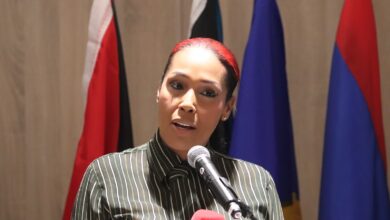As we reflect on the last two quarters, it is fair to say that some key topical issues (not necessarily in order of importance) which have appropriately engaged CARICOM policy makers have been: (i) the urgent need for stimulating economic growth; (ii) the matter of the impact of graduation on the availability of development assistance (ii) high external debt burden, and, (iv) post 2015 development agenda. Brief comments on the link between energy and the aforementioned issues, and how transitioning the energy sector can positively impact same are provided.
The focus of the CARICOM Energy Policy is primarily about the needed energy transition in the Region. It seeks to promote transformation of the energy sector to a driver for increased economic competitiveness and improved quality of life for all CARICOM citizenry. It therefore is a relevant part of the armoury for confronting the said issues.
On the issue of energy and economic growth, the link is obvious, as energy forms a key input to all economic activities. According to the world Bank (Report: Mitigating vulnerability to . . oil prices) the negative macroeconomic effect from higher oil prices in Caribbean is 4 times greater than countries in south America, and 30% worse than Central American countries. Further, every US$10 increase in the price of oil costs 3.5 US cents per KWh (In Jamaica for example, an additional 1 US cent per KWh translates to billions of J$ per annum cost to that economy). The lesson is that even a 10% shift in the energy supply or consumption through fuel substitution or energy efficiency improvement can yield huge savings to the national economies and result in significant contribution towards growth.
On the matter of the impact of graduation on development assistance finance for CARICOM countries, it is considered that the availability of climate financing which can benefit energy sector transition, is less likely linked to issue of graduation. While the region continues its advocacy for more equitable approaches, it appears that that there may be an opportunity to reposition many of our development challenges in the context of climate resilience, to take advantage of funding available under the Climate Finance umbrella for energy sector transformation objectives.
The external debt for most CARICOM countries is increasingly an energy debt, in this regard, comments made earlier in relation to the potential for a small shift towards substitutions (on the supply side) and improved efficiency (on the demand side) yielding big impact are relevant here.
On the matter of the post 2015 development Agenda, it is considered that there may be an opportunity for an incorporation of SIDS’ energy transition objectives as part of the climate resilience and poverty reduction objectives, given that the energy situation in SIDS linked to their common characteristics, has been long been identified as a binding constraint.
It is therefore considered that efforts towards energy sector transformation in CARICOM are germane to overcoming the current challenges.






